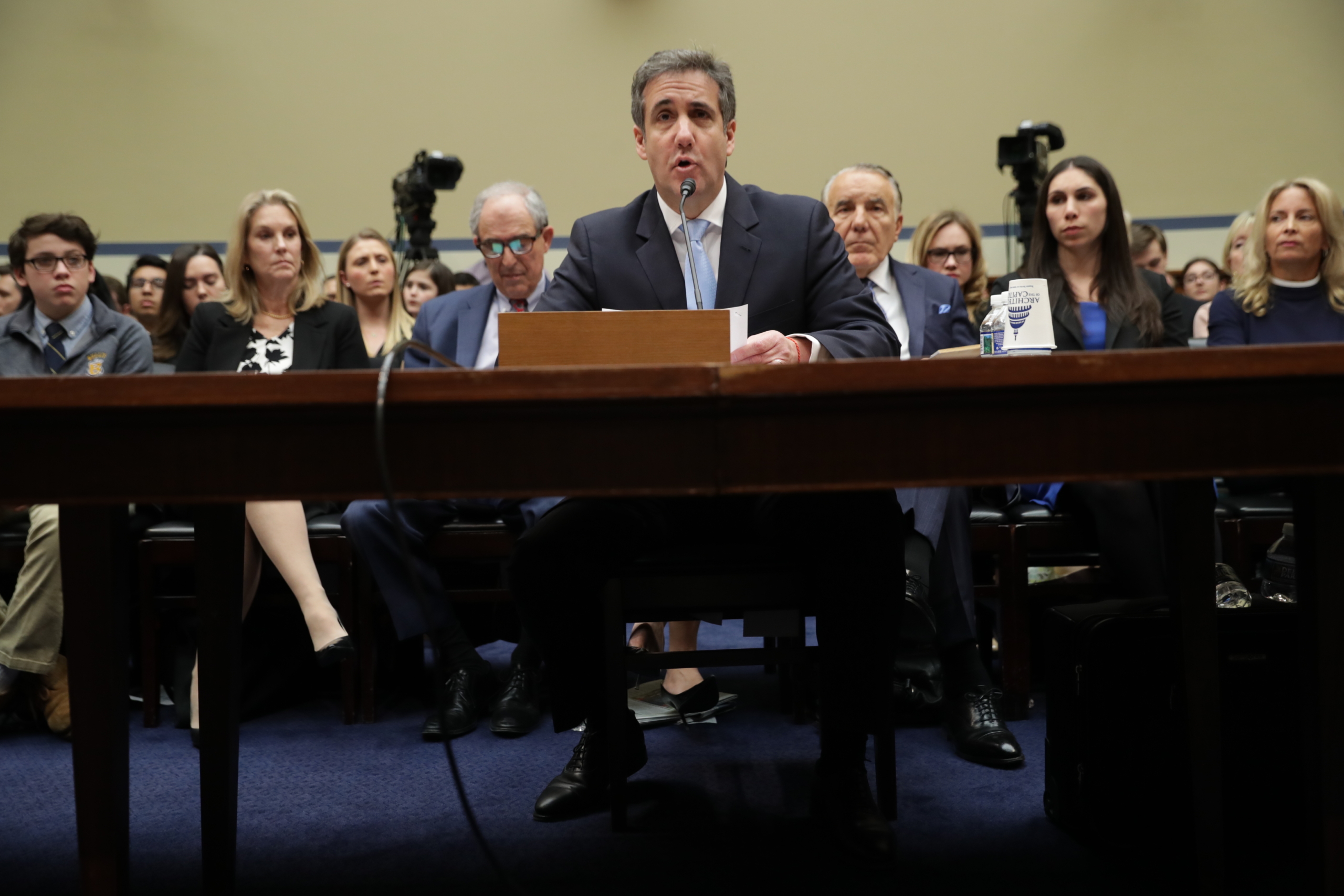Sign up for The Media Today, CJR’s daily newsletter.
During the televised testimony of Michael Cohen, former fixer to Donald Trump, before the House Oversight and Reform Committee, I saw his eyebrows and thought of the noxious browntail moth caterpillar, as two of them appeared to be wriggling up and down his forehead. “Sitting here today, it seems unbelievable that I was so mesmerized by Donald Trump that I was willing to do things for him that I knew were absolutely wrong,” he said. Cohen, who is 52, has metallic gray hair. He wore a navy suit; his shirt was white and crisp; his tie was cleaning-fluid blue. He looked at once contrite and resentful. “Over the past year or so, I have done some real soul searching,” he went on. “I see now that my ambition and the intoxication of Trump power had much to do with the bad decisions I made.”
Browntail caterpillars have tiny hairs, called setae, that are toxic; in the chamber, there was evidently poison in the air—the same kind that journalists have inhaled through Trump’s celebrity, candidacy, and election. “Lying for Mr. Trump was normalized, and no one around him questioned it,” Cohen said. “In fairness, no one around him today questions it, either.” He offered evidence, including newspaper articles. See Exhibit 2: a pair of stories, one from The Guardian, another from Forbes, that Cohen describes as “examples of Mr. Trump inflating and deflating his assets.” Exhibit 3A: an item in the Daily News, next to photos of Vanessa Hudgens and Olivia Munn, about the sale of a portrait of Trump at an ArtHamptons auction. “The portrait was purchased by the fake bidder for $60,000,” Cohen said. (Trump held on to the painting.) Exhibit 7: an article by NBC New York, quoting (via the Associated Press) Trump on Barack Obama: “I heard he was a terrible student, terrible.”
ICYMI: BuzzFeed reporter discusses controversial Cohen scoop
Cohen described how he got caught up in Trump’s distortion of reality, and his role in it perpetuating it. “Mr. Trump did not directly tell me to lie to Congress,” he explained. “That’s not how he operates. In conversations we had during the campaign, at the same time I was actively negotiating in Russia for him, he would look me in the eye and tell me there’s no business in Russia and then go out and lie to the American people by saying the same thing. In his way, he was telling me to lie.” This statement, a journalist named Michael Weiss has pointed out, explains why Special Counsel Robert Mueller batted against the recent BuzzFeed story that reported on Trump instructing Cohen to lie—we’re in a land of pedantic harping on semantics.
In sum, Cohen said, “I have lied, but I am not a liar. I have done bad things, but I am not a bad man.” The premise is that Cohen, a loving husband and father, was washed out on Trump’s poison. He is not a rat, as Trump called him—see Exhibit 8—but a victim of some mystical, venomous, larval force. (Does it emanate from Trump’s hair? That would explain so much.)
That’s not a satisfying defense. And yet, one looks at the array of news stories. And then, reflect on other examples from the past few years of Trump coverage. The press, too, has been high on something toxic. The evidence is in Cohen’s exhibits and, of course, sitting in Hanoi—reportedly tuned in to his TV.
The idea that Cohen wishes Congress (and everyone) to accept, after all his hubris, is that, unlike Trump (“He is capable of behaving kindly, but he is not kind”), he, Trump’s right-hand, is a good man, capable of goodness, and now making good. What can be said of us, the journalists who have been unspooling their narratives? We are capable of getting our story right, but we can’t deny we didn’t. We are capable of puncturing Trump’s false statements about his finances, but we flubbed. We are capable of finding out what happened at an art event in the Hamptons, yet that story went unchallenged. We are capable of providing bullshit-free coverage of an election, but we didn’t. And we’re still under Trump’s influence—when he gives a preposterous press conference on the “need” for a wall along the Mexican border, all the networks show it live.
Cohen’s defense, pathetic as it sounds, seems a lot like ours. “Mr. Trump is an enigma,” he said. “He is complicated, as am I. He has both good and bad, as do we all.” The charges against him are different, to be sure, and significantly so. But to the extent that the press legitimized and fostered Trump, the reckoning is not over. The toxicity of Trump in the media will not, by the changing of seasons, be washed underground. Send in the fumigators.
ICYMI: “If it were a relationship, we’d call it gaslighting, but it’s a profession, so we call it PR.”
Has America ever needed a media defender more than now? Help us by joining CJR today.



